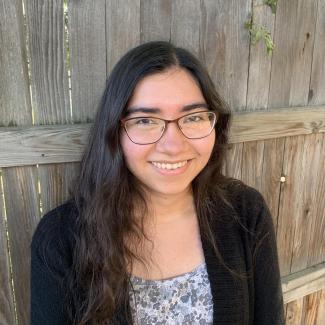Congratulations Jessica Romero for successfully defending your Master's Degree Thesis!
Jessica Romero
Master’s Degree Candidate
Dr. Timberley Roane’s Lab
CU Denver Department of Integrative Biology
When: Friday, November 17, 2023
Where: Science Building, Rm 1111, at 9:00a
"Using Metagenomic Sequencing to Elucidate the Bacterial Degradation of 1,4-Dioxane in Groundwater Associated With a Colorado Landfill"
1,4-dioxane (dioxane) is an organic chemical in both industrial and municipal wastes, which has led to widespread contamination of groundwater used as drinking water. Although the Environmental Protection Agency (EPA) classifies dioxane as a probable human carcinogen, it does not currently regulate the chemical. In light of this, biodegradation has become a promising strategy to remove dioxane from the environment, as certain bacteria and fungi degrade dioxane through direct metabolism or co-metabolism mechanisms facilitated by soluble di-iron monooxygenase (SDIMO) enzymes. Outside of Denver, Colorado, the Lowry Landfill received a range of industrial and municipal wastes from 1964 to 1980. Disposal practices contaminated the surrounding environment, causing the EPA to designate the landfill as a Superfund Site in 1984. In 2003, dioxane was detected in off-site groundwater. To remediate groundwater, the landfill constructed a pump-and-treat biological treatment system (BTS) consisting of bioreactors that promote dioxane biodegradation. This study aimed to describe the bacterial community compositions, SDIMOs, and potential dioxane degradation mechanisms associated with the landfill BTS. Minor fluctuations in bacterial community compositions were observed, with a constant presence of taxa previously associated with dioxane degradation such as Pseudonocardiaceae and Hyphomicrobiaceae. One class of SDIMOs (Group V, dioxane monooxygenase-like SDIMOs) consistently dominated over others and showed evidence of horizontal gene transfer. Within this class of SDIMOs, both direct metabolism and co-metabolism of dioxane have previously been observed. Future research may correlate bacterial community dynamics with dioxane removal efficiency in the BTS, which can inform similar remediation efforts at other dioxane-impacted sites.
Everyone is welcome to attend.

